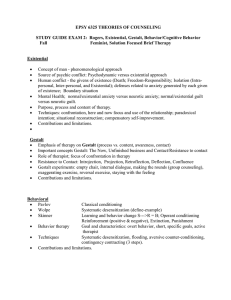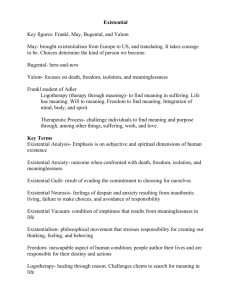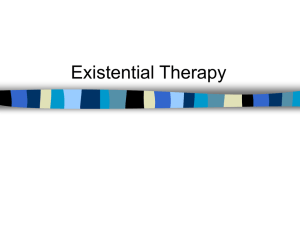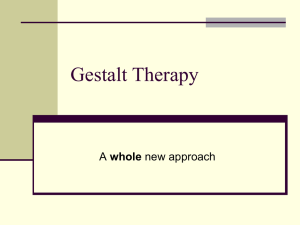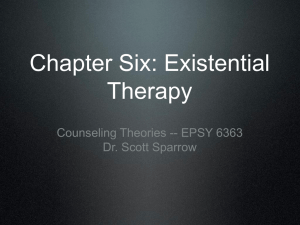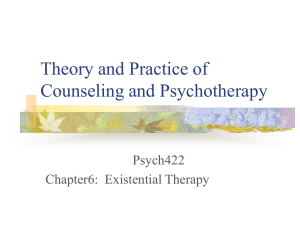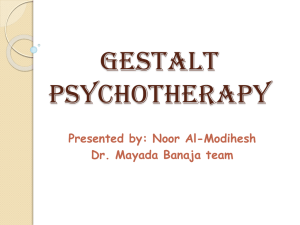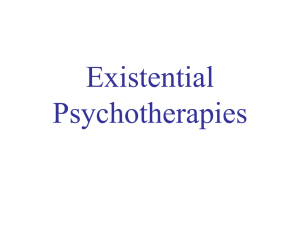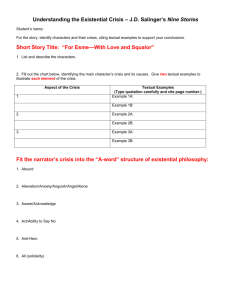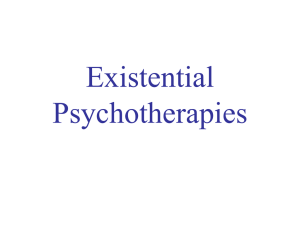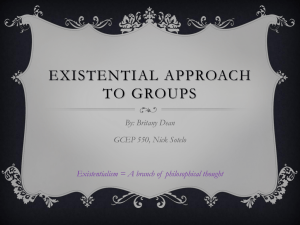EPSY 6325 THEORIES OF COUNSELING
advertisement
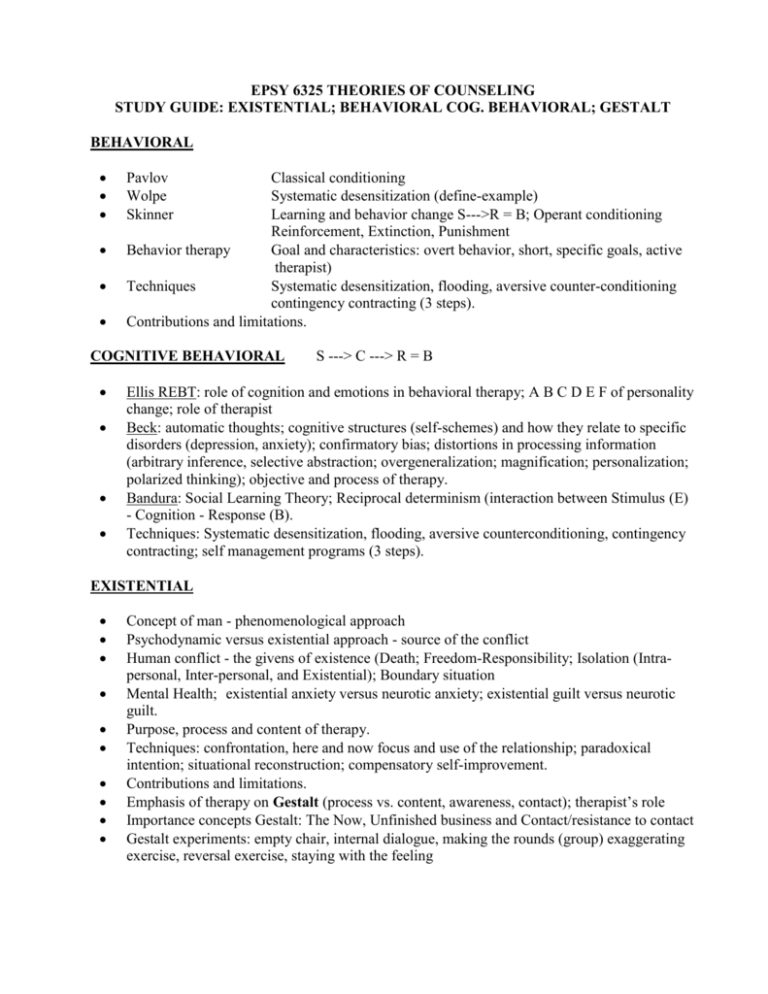
EPSY 6325 THEORIES OF COUNSELING STUDY GUIDE: EXISTENTIAL; BEHAVIORAL COG. BEHAVIORAL; GESTALT BEHAVIORAL Pavlov Wolpe Skinner Classical conditioning Systematic desensitization (define-example) Learning and behavior change S--->R = B; Operant conditioning Reinforcement, Extinction, Punishment Behavior therapy Goal and characteristics: overt behavior, short, specific goals, active therapist) Techniques Systematic desensitization, flooding, aversive counter-conditioning contingency contracting (3 steps). Contributions and limitations. COGNITIVE BEHAVIORAL S ---> C ---> R = B Ellis REBT: role of cognition and emotions in behavioral therapy; A B C D E F of personality change; role of therapist Beck: automatic thoughts; cognitive structures (self-schemes) and how they relate to specific disorders (depression, anxiety); confirmatory bias; distortions in processing information (arbitrary inference, selective abstraction; overgeneralization; magnification; personalization; polarized thinking); objective and process of therapy. Bandura: Social Learning Theory; Reciprocal determinism (interaction between Stimulus (E) - Cognition - Response (B). Techniques: Systematic desensitization, flooding, aversive counterconditioning, contingency contracting; self management programs (3 steps). EXISTENTIAL Concept of man - phenomenological approach Psychodynamic versus existential approach - source of the conflict Human conflict - the givens of existence (Death; Freedom-Responsibility; Isolation (Intrapersonal, Inter-personal, and Existential); Boundary situation Mental Health; existential anxiety versus neurotic anxiety; existential guilt versus neurotic guilt. Purpose, process and content of therapy. Techniques: confrontation, here and now focus and use of the relationship; paradoxical intention; situational reconstruction; compensatory self-improvement. Contributions and limitations. Emphasis of therapy on Gestalt (process vs. content, awareness, contact); therapist’s role Importance concepts Gestalt: The Now, Unfinished business and Contact/resistance to contact Gestalt experiments: empty chair, internal dialogue, making the rounds (group) exaggerating exercise, reversal exercise, staying with the feeling
